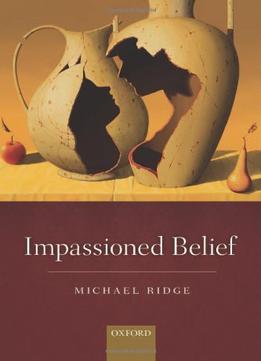
Impassioned Belief
by Michael Ridge /
2014 / English / PDF
1.1 MB Download
We all form judgments about what ways of life are worthwhile, what we are morally required to do and so on. These so-called "normative" judgments have seemed puzzling in part because they exhibit both belief-like and desire-like features. Traditional cognitivist theories hold that these judgments are beliefs rather than desires; traditional non-cognitivist theories hold that they are desires rather than beliefs. Each of these traditions tries to accommodate or explain away what the other tradition handles so easily. One often gets the sense that the defenders of these increasingly complex theories are trying to force a square peg into a round hole. So-called "hybrid theories" try to have the best of both worlds by understanding normative judgments as constituted by both belief-like and desire-like states. In Impassioned Belief, Michael Ridge defends a distinctive hybrid theory he calls "Ecumenical Expressivism." Ridge provides a useful critical taxonomy of the by now bewildering array of rival hybrid theories in the literature and argues for the superiority of his more expressivist hybrid theory. By emphasizing the often neglected distinction between meta-semantics and semantics, Ecumenical Expressivism accommodates both the context-sensitivity of normative predicates and a broadly truth-conditional approach to semantics. The resulting theory is better informed by the insights of modern linguistics. The hybrid structure of Ecumenical Expressivism offers a more elegant and satisfying solution to the dreaded "Frege-Geach" problem for expressivism. Ridge builds on this solution with a theory of propositions which accommodates irreducible normative propositions in an expressivist framework. This, in turn, sets the stage for a theory of truth which does not depend on controversial "deflationist" assumptions, but can be combined with any otherwise plausible conception of truth. Finally, Ridge develops and defends a novel theory of disagreement and a more cognitivist hybrid theory of talk of rationality. Ecumenical Expressivism thereby offers a systematic conception of normative thought and discourse which aspires to transcend the false dichotomies and deep problems associated with more traditional approaches.











